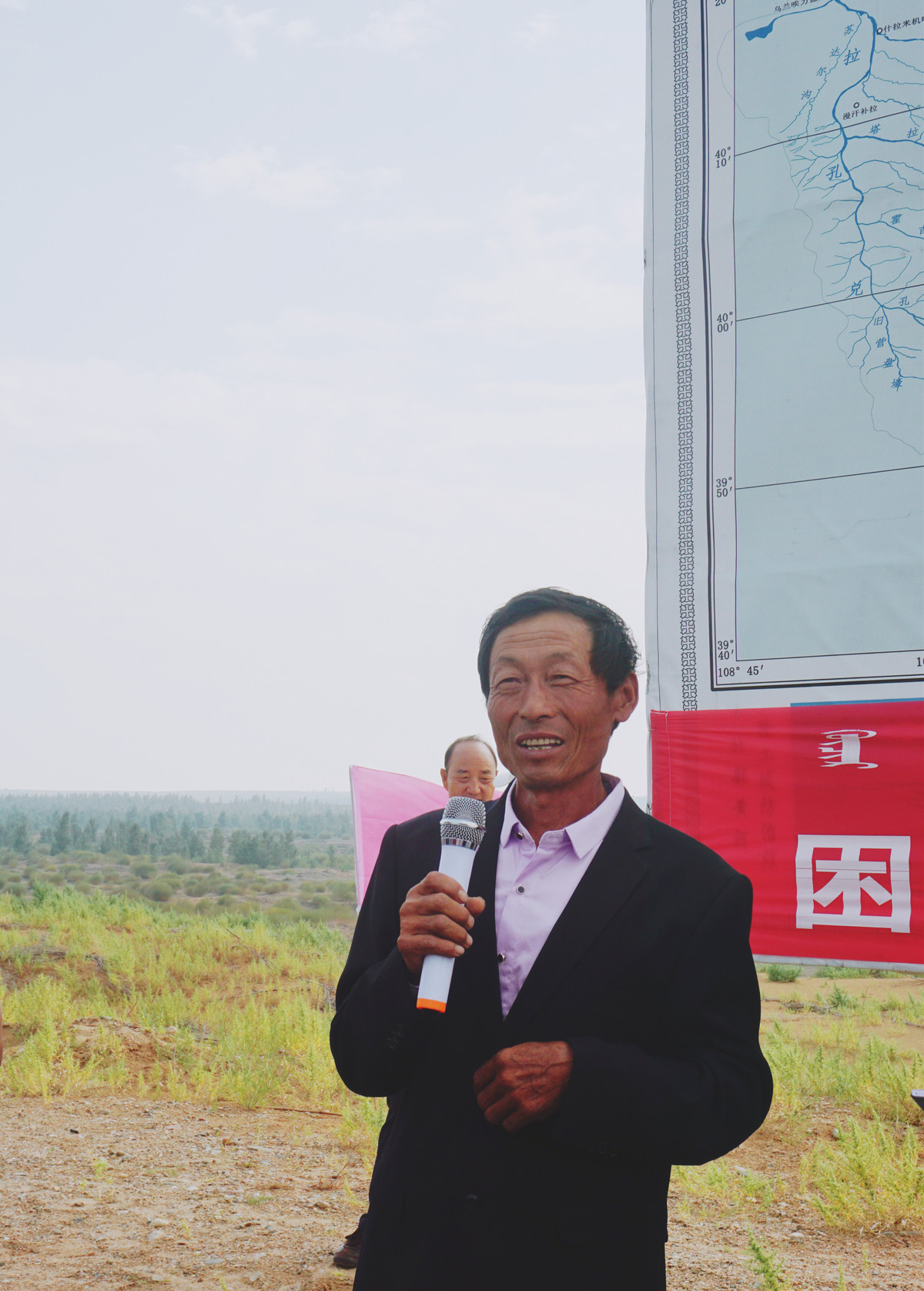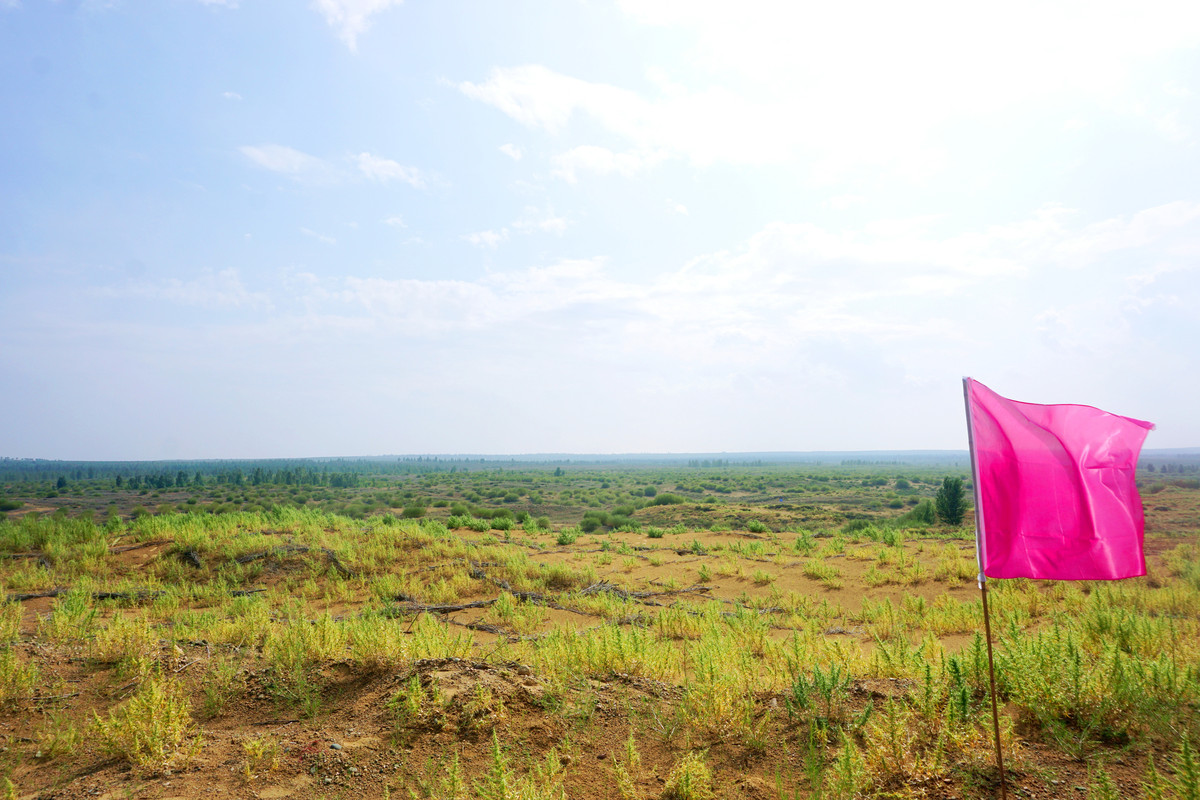Fighting desertification with forestation in China's Inner Mongolia
- By Wang Yiming
 0 Comment(s)
0 Comment(s) Print
Print E-mail China.org.cn, September 18, 2020
E-mail China.org.cn, September 18, 2020

After seeing the shifting sand beginning to settle and the soil quality improving, Gao Linshu began planting castor seeds and made money by selling the salix trees and surrounding castor soil. Through their efforts, the Gao family became the first household to earn over 10,000 yuan in the village.
Admiring their success, villagers began to follow suit. Gao Linshu contracted more land and volunteered to give saplings to those locals who contracted barren land. By planting trees, the villagers also received subsidies from the local government.
To date, about 15 million trees have been planted in Guanjing village, covering an area of 12,800 hectares — nearly 60% of the village's total area — according to data provided by the Ordos government.

Apart from carrying on his 82-year-old father's afforestation career, Gao Eryun has also worked as a farmer, kept goats, and served as a forest ranger. In recent years, his annual income has reached around 200,000 yuan.
Gao Eryun and his family are representatives of a community of diligent and resilient tree planters in Inner Mongolia. Over the past 30 years, thanks to the support of the government and the dedication of the people, their efforts in combating desertification in China have helped restore degraded land and poor ecological environments, which in turn have helped improve livelihoods.
"Planting trees saves the environment. Only when the problem of desertification is solved can we raise cattle and sheep and earn an income," Gao Eryun said. "The government support and subsidies shore up our confidence."






Go to Forum >>0 Comment(s)